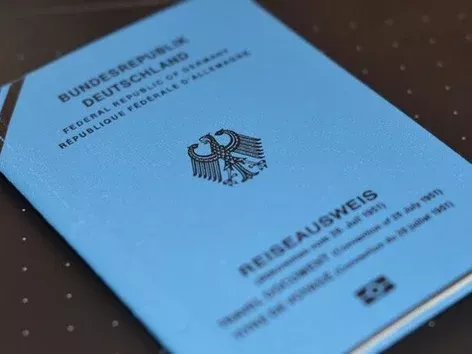Tax for expats living in Germany 2024

In Germany, the earnings of every citizen are subject to a basic tax exemption, including researchers and scientists coming from abroad. In 2024, the tax system for expats in Germany has changed slightly. Learn more about how German income tax works and how to pay it
Income tax, known as Einkommensteuer, plays an important role in the finances of residents. This tax is paid throughout the year in the form of a "payroll tax" (Lohnsteuer). However, if you stay in Germany for more than 6 months continuously, you need to file a tax return (Steuererklärung) with the local tax office (Finanzamt).
The tax year in Germany corresponds to the calendar year. You can file a tax return yourself or use professional tax advice. From the beginning of 2023, those who use the electronic tax return system (ELSTER) have until October 2 to file their tax returns. It is important to keep in mind that in case of circumstances such as illness or lack of documents, an extension can be requested. For those who choose professional tax advice, the deadline for filing a tax return is July 31, 2024. It is important to adhere to the deadlines, as penalties may be imposed for late filing of tax returns.
By submitting an income tax return (Einkommensteuererklärung), you will have the opportunity to check for possible overpayments and determine whether you are entitled to a refund. This process is important for maximizing the benefits of the tax system and effective financial management in Germany.
If you are planning to travel or move to Germany, it is worth purchasing a travel insurance policy. On the Visit World portal, you can purchase insurance from the best trusted agents, as well as guaranteed to receive high-quality medical care anywhere in the world. All you need to do is to indicate your destination country and citizenship and choose the insurance policy you need.
How expats in Germany can avoid double taxation
When moving to work in Germany during the calendar year, it is important to take into account the peculiarities of taxation. By law, you are obliged to take into account the income you received before becoming a German resident when determining the tax rate for your German income.
Germany has concluded tax treaties with many countries, including the United Kingdom and the United States, to avoid double taxation for foreigners. These treaties clearly define in which country you should pay taxes and which income may be exempt from taxation in Germany.
For example, Article 20 of the Germany-U.S. treaty and Article 19 of the Germany-U.K. treaty allow individuals who work in public research institutions in Germany for no more than two years to pay taxes in their home country.
This ensures transparency and reduces financial burdens for international workers, allowing them to effectively manage their finances and comply with their tax obligations in the context of international work.
Tax brackets for migrants in Germany
In Germany, the determination of tax class (Lohnsteuerklasse) plays an important role in determining tax liabilities. It affects the amount of income tax (Einkommensteuer), solidarity surcharge (Solidaritätszuschlag) and church tax (Kirchensteuer). This parameter also has an important impact on the amount of social benefits, including social insurance and maternity leave. There are six tax brackets in Germany, and your tax category depends on your marital status and the number of jobs you have. Changes in your personal circumstances will lead to changes in your tax bracket, reflecting your current situation.
The tax brackets in Germany are:
1. Single or divorced persons who do not fall into tax category II or III
2. Single parents
3. Married couples and civil partners. Conditions: Tax group III is assigned to the spouse/partner with the higher income. The other spouse/partner is assigned to tax group V.
4. Married couples and civil partners. Conditions: Both spouses can be classified in tax group IV if they earn approximately the same amount.
5. Married couples and civil partners. Conditions: Tax rate V is assigned to the spouse/partner with the lower income. The other spouse/partner is assigned tax rate III.
6. Employees with a second job or more
Income tax rates in Germany
There are four tax brackets in the German tax system. At the beginning of 2023, the first tier allowed individuals with an income of up to EUR 10,908 (in 2024 - EUR 11,604) to be exempt from taxation. The second bracket covers income up to EUR 62,810, and the rate increases from 14% to 42%. The third and fourth brackets apply to income from €62,810 to €277,825, or more than €277,825, and are taxed at rates of 42% and 45%, respectively.
The federal central tax office (Bundeszentralamt für Steuern, BZSt) provides an income tax calculator that helps you calculate the percentage of tax. For example, if your gross income is 25,000 euros, and you fall into the second bracket, you will probably pay 29% tax. While a foreigner with a salary of 40,000 euros is taxed at a rate of 36%.
Also, if you are a member of a religious community, you may have to pay church tax (Kirchensteuer), which is 8 or 9% of income tax, depending on where you live. Such rates determine the tax system, which allows fine-tuning taxation depending on the income and personal circumstances of each taxpayer.
Obtaining a tax identification number for expats in Germany
All individuals residing in Germany are issued a tax identification number (Steueridentifikationsnummer), which is intended for unique identification in the tax system. This 11-digit number is mandatory for all tax returns, applications and notifications submitted to the German tax authorities.
The process of obtaining a tax number for foreigners is automated, and they do not need to submit a separate application. The new tax number is sent by mail within two to four weeks after the address is registered.
There are three main ways to find your tax number: check your income tax return (Einkommensteuerbescheid), look it up on your payroll tax certificate (Lohnsteuerbescheinigung), or refer to an information letter from the tax office (Finanzamt).
If a foreigner loses or forgets his/her tax number, he/she can obtain a new certificate by contacting the Federal Central Tax Office (Bundeszentralamt für Steuern, BZSt).
The procedure for paying income tax in Germany
Your employer deducts income tax, pension and health insurance contributions from your income and transfers them to the tax office on your behalf. In addition to this, sickness and unemployment insurance are also calculated and paid by your employer.
To file an income tax return in Germany, you can either use a form obtained from your local tax office or download the form from the BZSt website and send it by mail. There is also an option to file online using the free encrypted tool ELSTER, which facilitates the convenience and efficiency of the electronic filing process.
Taxation of professors and researchers in Germany
Foreign professors and researchers in Germany are subject to the same domestic tax rules as other citizens of the country. If your research assignment lasts more than six months, your global income is subject to taxation in Germany.
Visiting professors and researchers may benefit from certain exemptions from German taxation, provided that there is a double taxation agreement between Germany and their home country. In the case of students and researchers who receive scholarships, tax exemption is possible under certain circumstances in accordance with German law.
It should be noted that it is important to discuss this issue with the organization that awarded the scholarship and to find out whether the scholarship is tax-exempt in your country. With additional support, professors and researchers can take certain expenses, such as books and travel, into account when calculating taxable income, according to national tax law.
The editors of Visit World recommend using the Travel Guide for Germany for a comfortable and safe trip.
The guide is a detailed written document that contains basic advice on obtaining a visa, crossing the border, getting a job, citizenship, and much more. More details at the link.
Products from Visit World for a comfortable trip:
Checklist for obtaining a visa and necessary documents in Germany;
Legal advice on immigration in Germany;
Travel insurance for foreigners in Germany;
Medical insurance all over the world.
More articles on the topic:
Paragraph 24 for refugees: eligibility for a residence permit for asylum seekers in Germany.
Recommended articles
3 min
Residence permit
Paragraph 25: obtaining permanent residence for refugees in Germany 2024
In order to stay in Germany, refugees can apply for asylum. To do so, they must go through the appropriate procedure and receive an official notification from the Aufenthaltsgestattung. Find out more about who is eligible for permanent residence for refugees in Germany under Paragraph 25 in 2024
21 Apr. 2024
More details2 min
For refugees
Fighting illegal migration in Germany: the policy of total control of German borders
The German government continues to fight illegal migration. A prerequisite for achieving positive results is enhanced control at the borders with Poland, the Czech Republic and Switzerland. Read more about the latest decision of the German Minister of the Interior Nancy Feser
27 Dec. 2023
More details2 min
Expats
Dual citizenship in Germany 2024: the main provisions of the new draft law
As of January 2024, a new law on dual citizenship may enter into force in Germany, which is being considered in light of the agreements reached. Despite two postponements of the vote on the law, the coalition announced that it had resolved previous differences and was moving forward with the law. Read more about the adoption of the German dual citizenship law
10 Mar. 2024
More details3 min
Work
Rules for registering with Arbeitsagentur: peculiarities of employment in Germany
Germany is a country with the most powerful economy in Europe, which directly affects the standard of living of its population. That is why many labor migrants seek to move and find work in this country. Germany does not close itself off from the flow of workers, as France and Britain do, but rather actively attracts foreign workers. Learn more about the employment procedure in Germany and the rules for registering with the Arbeitsagentur
07 Jan. 2024
More detailsAll materials and articles are owned by VisitWorld.Today and are protected by international intellectual property regulations. When using materials, approval from VisitWorld.Today is required.
